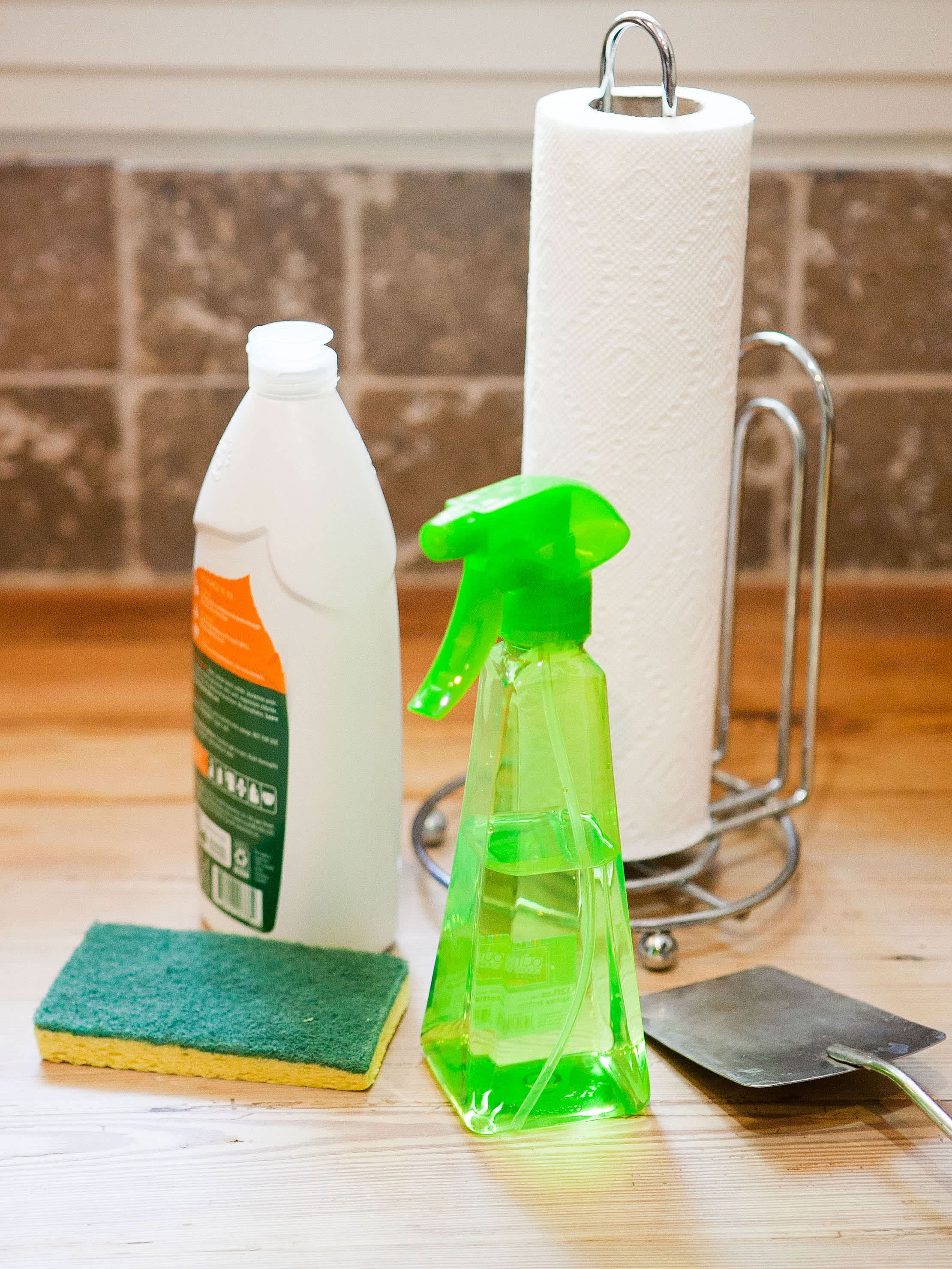Butcher block countertops bring warmth and natural beauty to kitchens, offering a durable and functional surface for food preparation. However, maintaining their pristine condition requires regular and proper cleaning to prevent damage and ensure food safety. Made from strips of wood glued together, butcher block countertops are naturally porous, making them susceptible to staining, moisture absorption, and bacterial growth if not properly maintained. Cleaning butcher block countertops involves more than just wiping down the surface; it requires a comprehensive approach to preserve their appearance and longevity.
Daily cleaning of butcher block countertops should begin with removing any food debris and wiping down the surface with a damp cloth. A mild dish soap diluted in water is typically sufficient for routine cleaning. It’s essential to avoid using harsh chemicals or abrasive cleaners, as these can damage the wood’s surface and strip away protective oils. After cleaning, the countertop should be thoroughly dried to prevent moisture from seeping into the wood, which can cause warping or cracking over time.
In addition to daily cleaning, disinfecting butcher block countertops is crucial, especially after preparing raw meat or other foods that can harbor bacteria. A simple and effective method for disinfecting is to use a solution of white vinegar and water. Vinegar is a natural disinfectant that can kill a variety of bacteria without the use of harsh chemicals. Spray the solution onto the countertop, let it sit for a few minutes, and then wipe it off with a clean, damp cloth. For deeper disinfection, a mixture of water and hydrogen peroxide can be used.
To tackle stains on butcher block countertops, a combination of baking soda and water can be very effective. Create a paste by mixing baking soda with a small amount of water and applying it to the stained area. Let it sit for a few minutes, then scrub gently with a soft brush or cloth. Baking soda is mildly abrasive and can lift stains without scratching the wood surface. For tougher stains, lemon juice can be added to the baking soda paste to enhance its cleaning power.

Maintaining the natural luster and durability of butcher block countertops involves regular oiling. Food-grade mineral oil is commonly used to seal and protect the wood, preventing it from drying out and cracking. To oil your butcher block, apply a generous amount of mineral oil to the surface and spread it evenly with a cloth. Allow the oil to soak in for several hours or overnight, then wipe off any excess. This process should be done monthly or whenever the wood appears dry. Oiling not only enhances the wood’s appearance but also creates a barrier against moisture and stains.
Deep cleaning butcher block countertops occasionally is essential to remove any built-up grime and restore the wood’s natural beauty. A mixture of salt and lemon can be used for this purpose. Sprinkle coarse salt over the countertop, then use a halved lemon to scrub the surface, squeezing the juice as you go. The salt acts as a mild abrasive, while the lemon juice disinfects and deodorizes the wood. Rinse with a damp cloth and dry thoroughly after cleaning.
For scratches and knife marks, sanding the surface can help restore the smoothness of butcher block countertops. Use fine-grit sandpaper to sand the affected area lightly, following the wood grain. After sanding, clean the surface to remove any dust, then reapply mineral oil to protect the wood. Regular sanding can keep the countertop looking new and extend its lifespan.
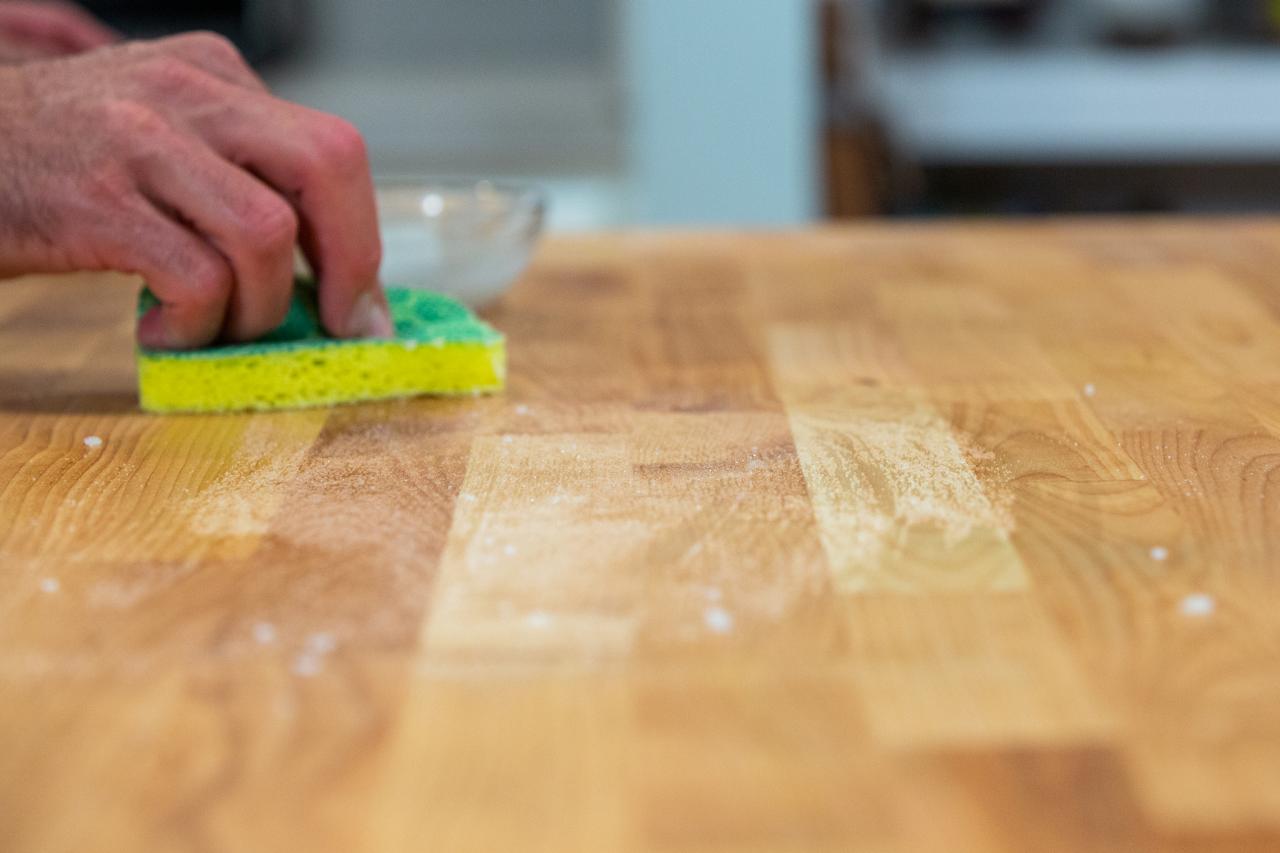
In addition to regular cleaning and maintenance, it’s important to use protective measures to prevent damage to butcher block countertops. Always use cutting boards when preparing food to avoid direct knife contact with the wood. Hot pads or trivets should be used to protect the surface from heat damage caused by hot pots and pans. By taking these precautions, you can prevent scratches, burns, and other damage that can mar the appearance of your countertop.
Butcher block countertops can develop an unpleasant odor if not properly cleaned and maintained. To deodorize, sprinkle baking soda over the surface and let it sit for a few hours or overnight. Baking soda naturally absorbs odors and can help freshen up the wood. Afterward, wipe down the countertop with a damp cloth and dry thoroughly. Regularly using lemon juice during cleaning can also help keep odors at bay due to its natural deodorizing properties.
If your butcher block countertop has become excessively dry or cracked, a mixture of beeswax and mineral oil can provide intensive hydration and repair. Melt a small amount of beeswax and mix it with mineral oil, then apply it to the countertop in a thin layer. Allow it to soak in for several hours before wiping off any excess. This treatment helps to rejuvenate the wood, making it more resilient and less prone to further damage.
To maintain the integrity and appearance of butcher block countertops, it’s essential to avoid prolonged exposure to water and other liquids. Wipe up spills immediately to prevent the wood from absorbing moisture, which can lead to swelling and warping. Avoid placing wet items directly on the countertop and ensure that any areas around sinks are sealed properly to prevent water damage.
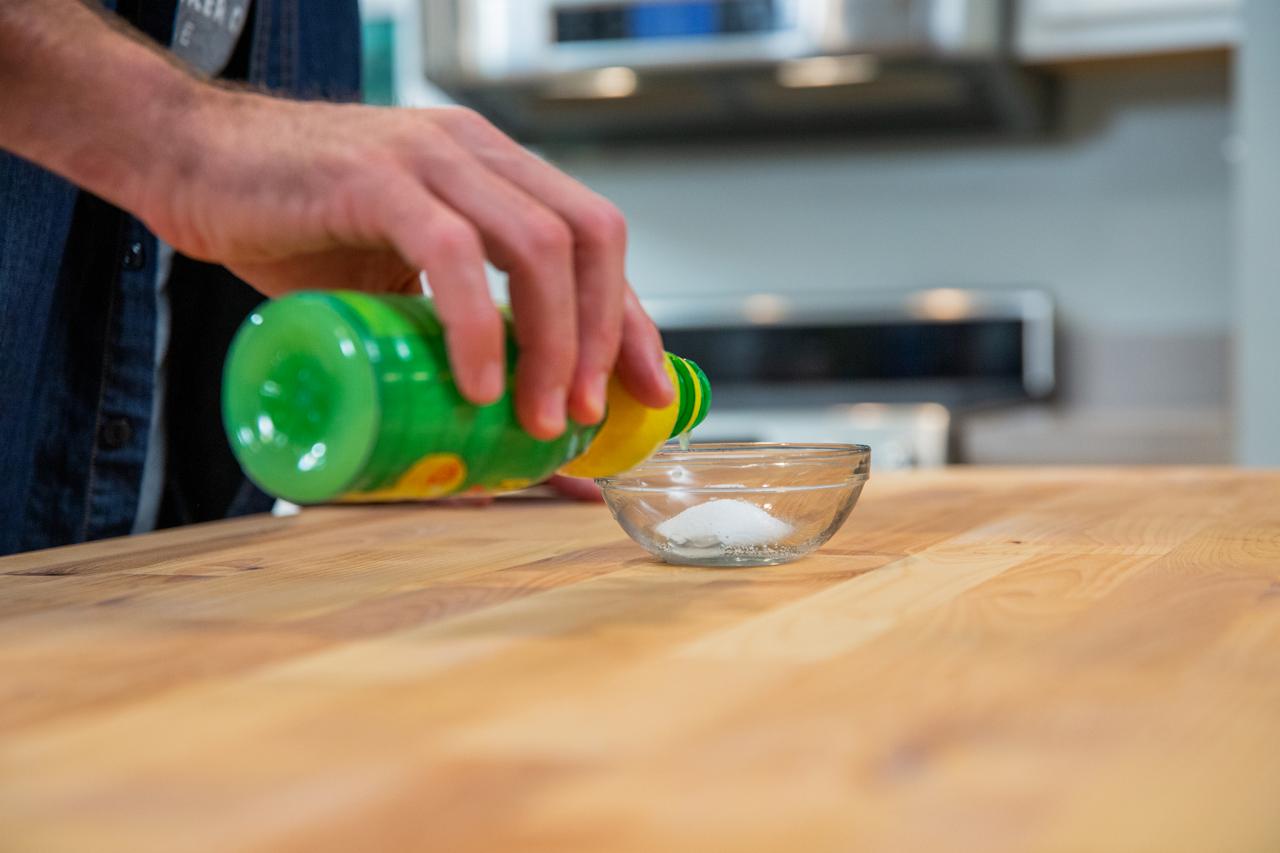
For butcher block countertops that are used heavily for food preparation, periodic resealing may be necessary to maintain their protective barrier. There are various food-safe sealants available, including those made from natural oils and waxes. Follow the manufacturer’s instructions for application and frequency to ensure your countertop remains well-protected and safe for food preparation.
Butcher block countertops can also be affected by changes in humidity, which can cause the wood to expand and contract. To minimize the impact of humidity fluctuations, it’s important to maintain a consistent indoor environment. Using a humidifier during dry seasons and a dehumidifier during humid seasons can help stabilize the moisture content of the wood, reducing the risk of cracking and warping.
Regular inspection of butcher block countertops is crucial for identifying any potential issues early on. Check for signs of wear, such as deep scratches, cracks, or discoloration, and address them promptly to prevent further damage. Regularly oiling, sanding, and cleaning will help keep the countertop in top condition and extend its lifespan.
Incorporating butcher block countertops into your kitchen design can provide both aesthetic and functional benefits. Their natural appearance adds warmth and character to any kitchen, while their durability makes them suitable for a variety of food preparation tasks. By following proper cleaning and maintenance routines, you can ensure that your butcher block countertops remain a beautiful and valuable feature of your home.
Common Mistakes to Avoid
When caring for butcher block countertops, several common mistakes can compromise their appearance and longevity. One major mistake is using harsh chemicals or abrasive cleaners, which can damage the wood’s surface and strip away protective oils. Always opt for mild, natural cleaners that are safe for wood surfaces. Another mistake is allowing moisture to sit on the countertop for extended periods. Wood is highly absorbent, and prolonged exposure to water can lead to swelling, warping, and mold growth. Always wipe up spills immediately and ensure the countertop is dry after cleaning.
Failing to regularly oil the countertop is another common mistake. Without regular oiling, the wood can dry out, become brittle, and crack. Monthly oiling with food-grade mineral oil helps to maintain the wood’s hydration and protect it from moisture and stains. Additionally, neglecting to use cutting boards can result in unsightly knife marks and scratches. Always use a cutting board to protect the surface from direct contact with sharp objects.
Improper sanding techniques can also cause damage. Using too coarse of sandpaper or sanding against the grain can create deep scratches and rough patches. Always use fine-grit sandpaper and sand along the wood grain to achieve a smooth finish. Lastly, exposing butcher block countertops to extreme temperatures, either hot or cold, can cause the wood to expand, contract, or even crack. Use hot pads or trivets for hot items and avoid placing them directly on the countertop.
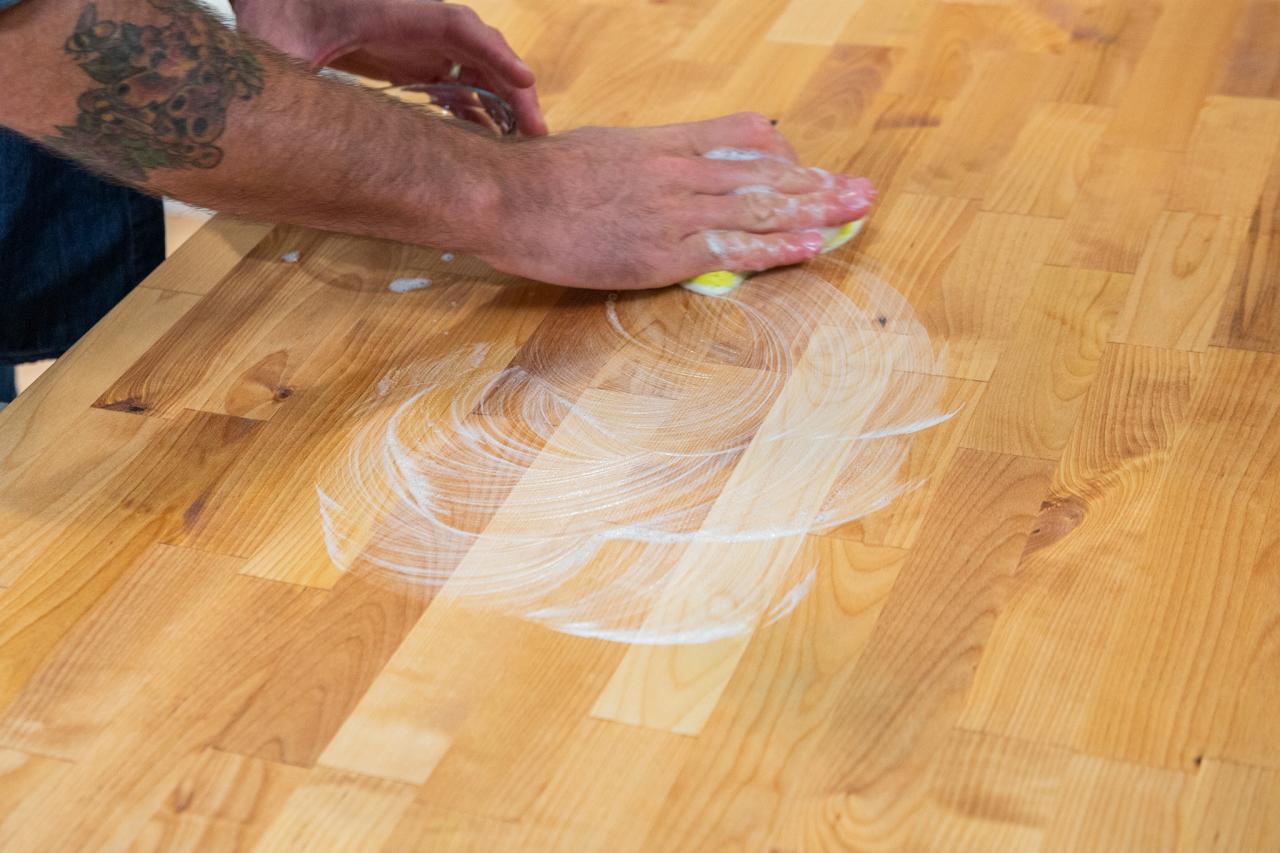
How often should I oil my butcher block countertop?
Oiling your butcher block countertop is crucial to maintaining its appearance and durability. It is recommended to oil the countertop at least once a month, or more frequently if the wood appears dry. Food-grade mineral oil is commonly used for this purpose as it penetrates the wood deeply, providing hydration and protection. Regular oiling helps to prevent the wood from drying out, cracking, and absorbing moisture, which can lead to warping and damage. By maintaining a consistent oiling routine, you can ensure that your butcher block countertop remains in optimal condition.
What should I do if my butcher block countertop develops stains?
If your butcher block countertop develops stains, a mixture of baking soda and water can be an effective cleaning solution. Create a paste by mixing baking soda with a small amount of water and apply it to the stained area. Let it sit for a few minutes, then scrub gently with a soft brush or cloth. For tougher stains, adding lemon juice to the baking soda paste can enhance its cleaning power. After treating the stain, rinse the area with a damp cloth and dry thoroughly. Regular cleaning and immediate attention to spills can help prevent stains from setting in.
Can I use my butcher block countertop as a cutting board?
While butcher block countertops are durable, it is not recommended to use them directly as cutting boards. Cutting directly on the countertop can result in knife marks and scratches, which can mar the surface and create grooves where bacteria can accumulate. Instead, always use a separate cutting board for food preparation. This practice not only protects the surface of the countertop but also helps to maintain its aesthetic appeal and hygiene.
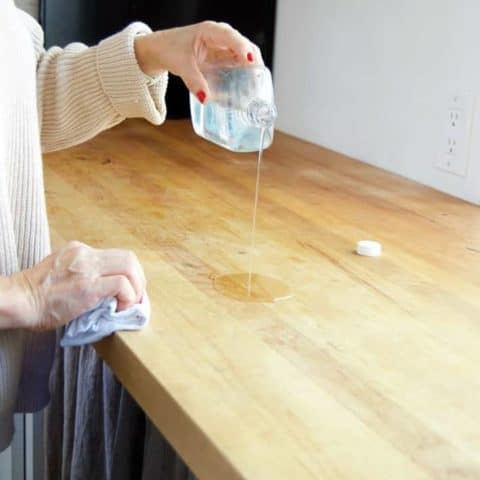
How do I disinfect my butcher block countertop after preparing raw meat?
To disinfect your butcher block countertop after preparing raw meat, use a solution of white vinegar and water. Vinegar is a natural disinfectant that can kill a variety of bacteria without the use of harsh chemicals. Spray the vinegar solution onto the countertop, let it sit for a few minutes, and then wipe it off with a clean, damp cloth. For deeper disinfection, a mixture of water and hydrogen peroxide can be used. Ensure the countertop is thoroughly dried after disinfecting to prevent moisture absorption and potential damage to the wood.
What should I do if my butcher block countertop feels rough or has deep scratches?
If your butcher block countertop feels rough or has deep scratches, sanding the surface can help restore its smoothness. Use fine-grit sandpaper to sand the affected area lightly, following the wood grain. Sanding along the grain prevents additional damage and creates a smoother finish. After sanding, clean the surface to remove any dust, then reapply mineral oil to protect the wood. Regular sanding can help maintain the countertop’s appearance and extend its lifespan.
Can butcher block countertops be used in outdoor kitchens?
Butcher block countertops are generally not recommended for outdoor kitchens due to their sensitivity to moisture and extreme temperature changes. Wood is highly absorbent and can be damaged by prolonged exposure to rain, humidity, and UV rays. These conditions can cause the wood to swell, warp, crack, and fade over time. If you prefer the look of wood for an outdoor kitchen, consider using materials specifically designed for outdoor use, such as composite or treated wood that can withstand outdoor elements.
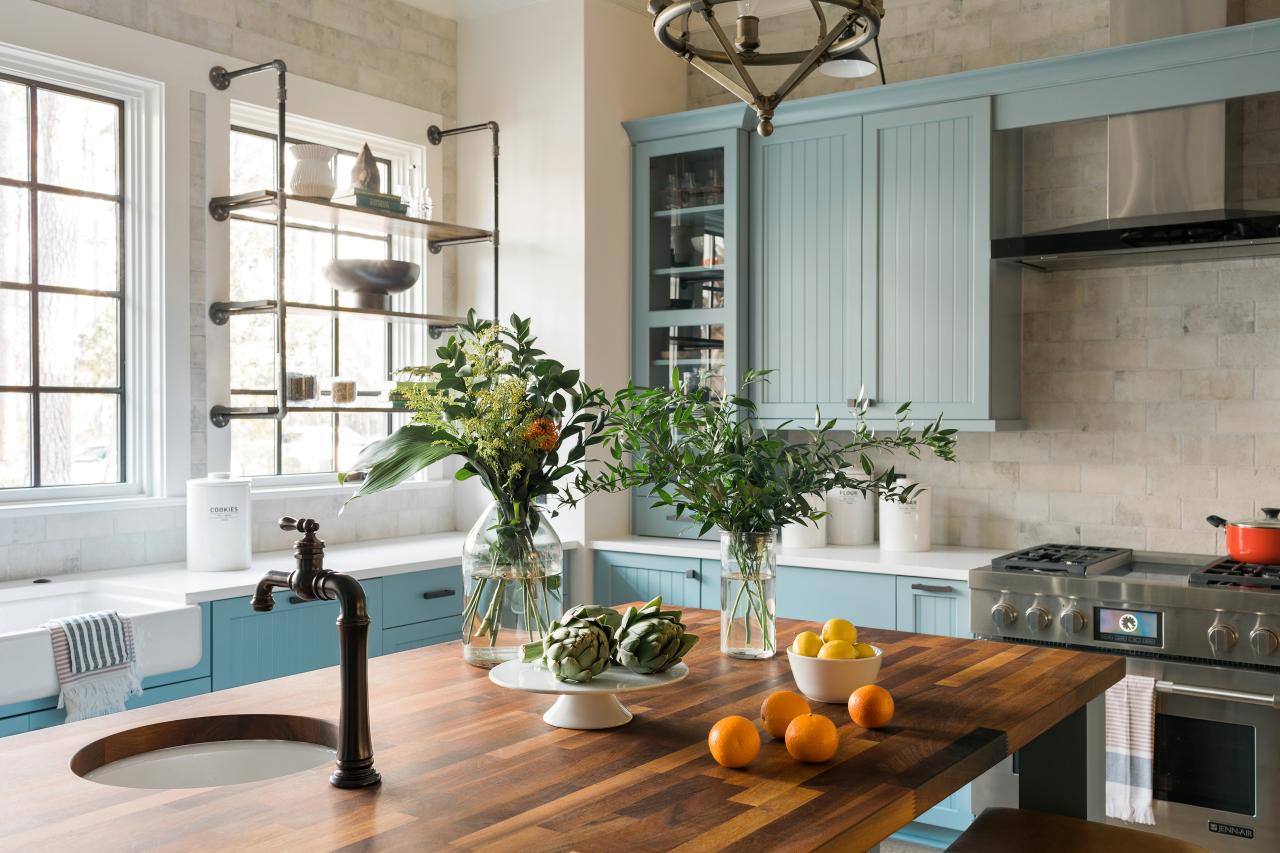
How To Clean Butcher Block Countertops

How to Care for Butcher Block Countertops Butcher block

How to Clean Butcher Block Countertops (DIY) Family Handyman
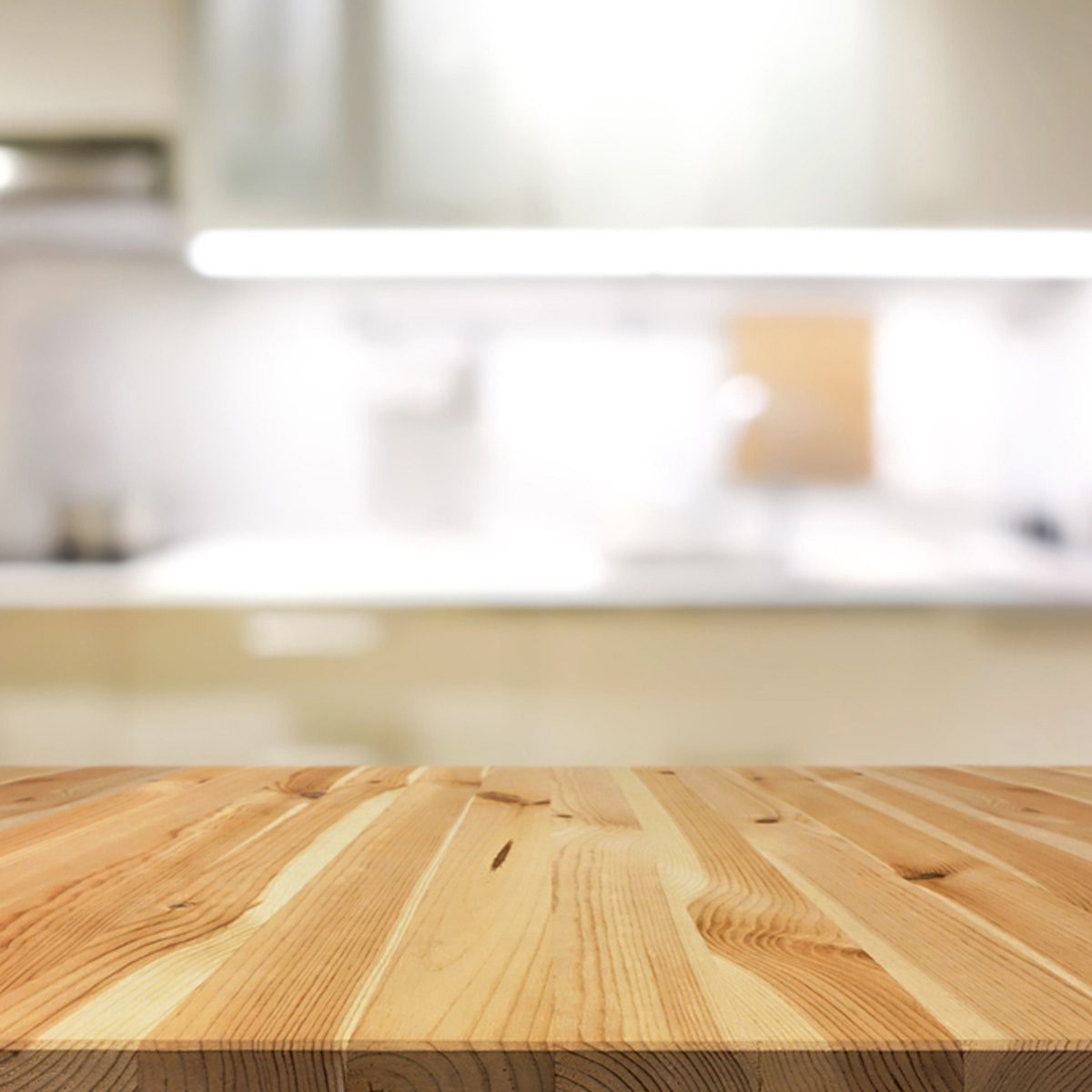
Related articles:
- Can You Paint Butcher Block Countertops
- Butcher Block Countertops With White Cabinets
- Pine Butcher Block Countertops
- Butcher Block Countertops Walnut
- Maple Butcher Block Countertops
- Care Of Butcher Block Countertop
- Butcher Block Countertops Maintenance
- Antique Butcher Block Countertops
- Butcher Block Countertop Sealing
- Wood Butcher Block Countertop
